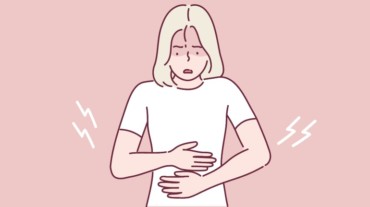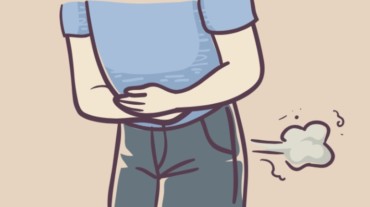
Farts come in all sorts of sounds, from high pitch to silent killers, but do you know that each of them has something to say? Yes, passing gas reveals critical health-related information about your body.
Farts or flatulence are experienced by each one of us and while it may be an embarrassing event for many, essentially it’s a good sign of digestive health signifying the release of intestinal gas post absorption and digestion of food.
According to Dr. Roy Patankar, leading Gastroenterologist & Director of Zen Multispeciality Hospital, Mumbai, there are various reasons why we pass gas.
“Did you know? When you swallow air the entire day, including from carbonated beverages or taking in air when you chew, gases are formed that can make you fart. You tend to fart because of the overgrowth of bacteria in your small intestine. Are you aware? Diabetes, liver disease, and even bowel disease can be the reasons behind the overgrowth of bacteria. You may also fart when the carbohydrates that you consume fail to digest properly,” said Dr. Roy.
There are times when the food doesn’t get fully digested by the enzymes present in the small intestines. Furthermore, when the carbs that are partially digested reach one’s colon, bacteria convert that part of that food into carbon dioxide gasses.
Eating too much fiber leads to passing gas, bloating and even constipation. This happens because the fiber bulks up and tends to solidify your stool. If you eat a lot of fiber then it will become hard for you to pass your bowel movements.

If the farting is accompanied by abdominal pain or discomfort after eating then that may be linked with food intolerance. Having milk or cheese may lead to flatulence and you may also be lactose intolerant. In this case, your body fails to absorb lactose (the sugar in dairy products) until it goes to the small intestine where bacteria tends to break down, making you pass gas. Foods such as milk and pulses cause heavy gas formation
“It is a no-brainer that you tend to swallow air when you consume food. If you eat quickly, you may end up swallowing a lot of air. Burping will help you to expel air out of the body but any air that remains inside will find its way into your lower digestive tract, causing you to fart, ” said Dr. Roy.

Certain medications, infections, diseases (diabetes or neuromuscular conditions) and complications from surgeries interfere with the digestive tract. Hence, the bacteria remain and overgrow in the small intestine causing gas.
If you are passing gas silently then watch out for IBS. This may indicate a toll on your large intestine as the coordinated muscle contractions tend to keep food moving from one’s stomach to the rectum, leading to passing gas, bloating and diarrhoea.
Select Topics of your interest and let us customize your feed.
PERSONALISE NOWDr. Roy suggested that, “Sorbitol, mannitol, and xylitol cause gas, bloating, and even loose motions. So, this indicates that your system is unable to tolerate these artificial sweeteners.”

Do you know we usually fart around 14 times a day? But, if you surpass this number then you must visit your doctor for consultation.
While it may sound funny, being nosy about your farts could help you stay healthy!